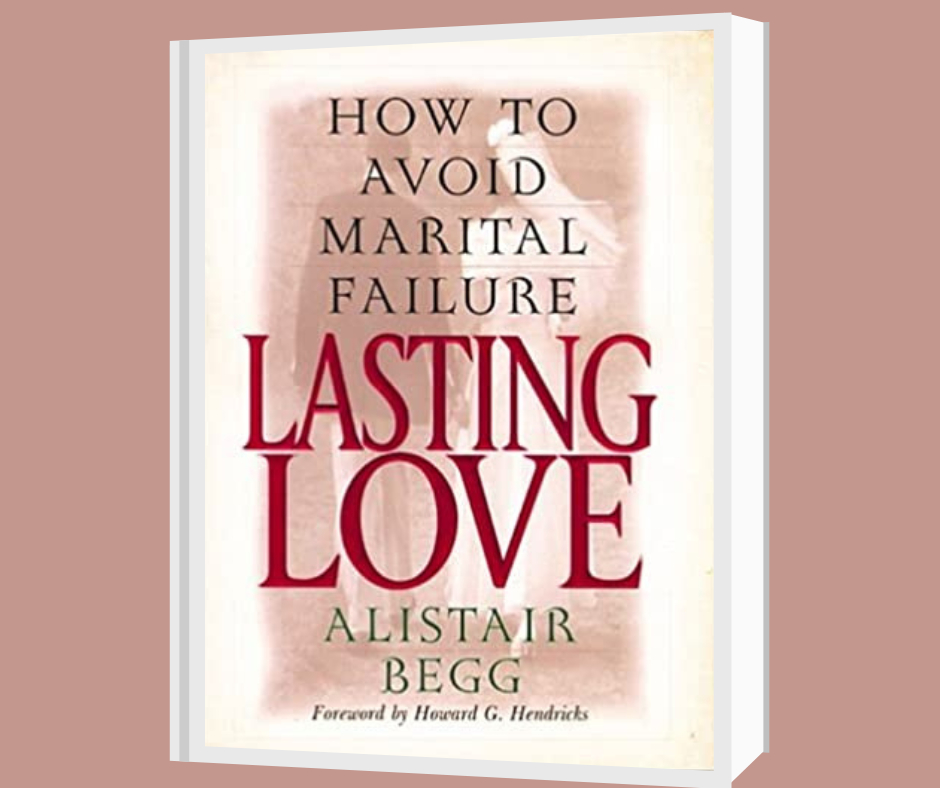Book Reviews
Lasting Love: How to Avoid Marital Failure, by Alistair Begg | Review by Rosa Byler

Alastair Begg’s opening line is “Another book on marriage?” We may well wonder with him, especially with a title that implies foolproof technique. Yet given that the institution of marriage is experiencing significant cultural attack and disintegration today, good books on the subject should abound. A sound view of marriage, for both individual couples and the church, can be strengthened by frequent reading of biblical material from varying perspectives. With one possible exception, this book provides such teaching.
Begg’s premise is that marriage is of divine origin; therefore, understanding and submitting to biblical teaching on the source and purpose of marriage is crucial. He speaks to the unmarried first, briefly discussing the call to singleness before looking at the marriage covenant as expressed by traditional vows. He states that, “The bottom line is Do not get divorced”; he agrees that the Bible equates remarriage with adultery and points out the sinful self-centeredness that rejects reconciliation. However, he classes a spouse’s unfaithfulness and desertion by a nonbelieving spouse as exceptions—“divinely authorized allowances” to remarry legitimately. (90)
Two lengthy chapters focus on the respective roles of husbands and wives. Begg allows that faulty Christian practice has contributed to the cultural misunderstanding of the Bible as a “textbook for female subjugation” and male dictatorship. To avoid confusion, the truths of submission and equality must be balanced, as follows: every home must have a leader, and “God has established…that this responsibility falls to the man” (104); the New Testament places “the essential dignity of women in general and wives in particular on an unshakable foundation.” (94)
Begg specifically addresses the positions of mother and keeper at home. Ideally, older women provide teaching in homes; their influence needs to be “natural, spontaneous and unprogrammed” rather than coming from “a new breed of women teachers standing behind podiums” instructing “young women who have left home to attend ‘class.’” (115) Women need their husbands’ support and encouragement for the pressures of home upkeep and the task of bringing up children, often in the face of overt cultural disdain and the temptation to seek outward beauty.
To husbands, Begg says “Now we have come to the hard part!” (129) The charge to love one’s wife as Christ loved the church is much more difficult than the commands given to women, especially given the multiple fronts on which men face responsibility. Begg emphasizes honor and sacrificial love but devotes half the men’s-role chapter to fatherhood, since he sees a lack of fatherly responsibility as one of the reasons for marital failure. (146) As with the rest of the book, no new material is presented but the scripture is simply rehearsed and applied; Begg does suggest a different possible interpretation of women as “weaker vessels”—it could refer to their position of submission as one of vulnerability rather than “mental or moral” weakness. (141)
The last chapters focus on what he calls “weeds” (failure to leave parents, taking one another for granted, etc.) and “hedges” (carefulness, communication, sacrifice) that hinder or help marriages. The book concludes with a sobering case study: the Beggs and friends had promised each other to intervene if either of their marriages were ever in danger. Later on, Begg’s alertness led to concern, numerous phone calls, and finally a transatlantic flight to confront the erring partner.
Aside from Begg’s position on divorce, the book is excellent. Theological foundations are well-balanced with practical applications, but the book’s biggest strength is its emphasis on developing healthy marriages rather than just avoiding divorce. The foreword references America’s 50% divorce rate and the even higher number of “disillusioned husbands and wives who struggle with apathy” (9); Begg points out that strong marriages have more far-reaching effects than just our personal wellbeing or our unhindered prayers. Unhealthy marriages can cause the Word of God to be maligned (Titus 2).